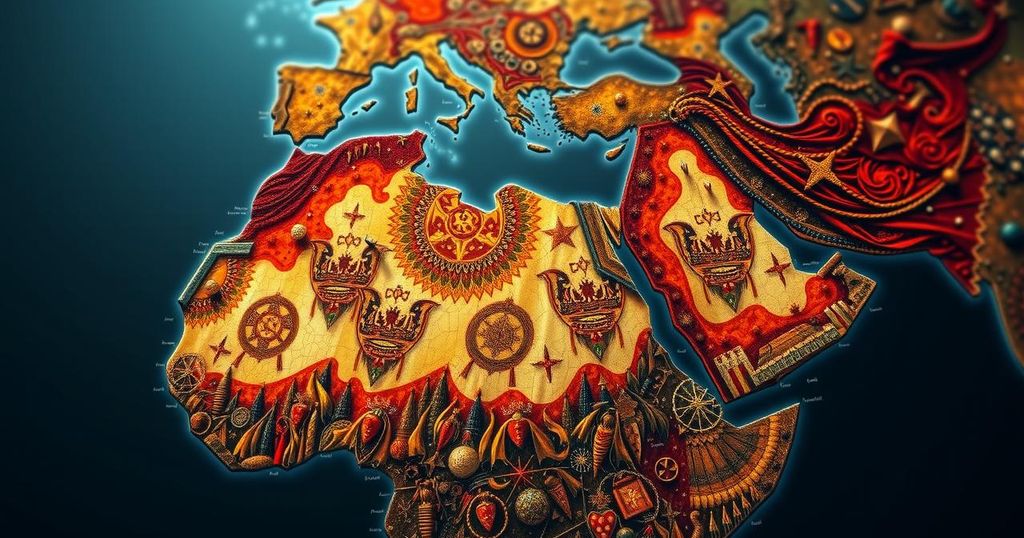In October, Egypt, Eritrea, and Somalia established a military alliance at a summit in Asmara, seen as a response to Ethiopia’s rising influence, particularly concerning the Grand Ethiopian Renaissance Dam (GERD). Egypt’s efforts to bolster alliances reflect a strategic shift from diplomatic to military collaboration amidst longstanding disputes over Nile water rights. The evolving dynamics could lead to increased tensions in the region as both nations pursue their strategic interests.
In early October, a significant trilateral regional cooperation summit convened in Asmara, attended by the presidents of Egypt, Eritrea, and Somalia. During this summit, the leaders committed to providing military support for Somalia’s counterterrorism initiatives, including the deployment of troops as part of the African Union (AU) mission. This alliance is perceived as Cairo’s response to Ethiopia’s escalating influence in the region, particularly following Ethiopia’s earlier memorandum of understanding with the self-declared republic of Somaliland, underlining its intent to lease coastal territory for a military base in exchange for recognizing Somaliland’s autonomy. Egypt’s longstanding diplomatic conflicts with Ethiopia center around the contentious Grand Ethiopian Renaissance Dam (GERD), which Cairo regards as a profound threat to its national security. Additionally, the recent enactment of the Entebbe Agreement, designed to govern the utilization of Nile River waters, has further alarmed both Egypt and Sudan regarding their water security. The Asmara summit is emblematic of Egypt’s strategic attempts to repair its relationships with its African allies through comprehensive diplomatic and military engagements. Iman Abdel Azim, a political science professor at Cairo University, elucidates that since 2019, “Egyptian decision-makers have placed growing emphasis on building stronger relations with African nations.” This includes recent military pacts such as a joint defense agreement with Somalia and a mutual defense pact with Eritrea. Engagements with Uganda’s military leadership also underscore Egypt’s commitment to enhancing cooperation in defense matters. According to Amani El-Tawil, Director of the African Program at Al-Ahram Centre for Political and Strategic Studies, Egypt’s diplomatic strategies have evolved to include heightened military and security interactions. These maneuvers seek to counterbalance Ethiopia’s assertiveness in the region, particularly regarding the unilateral progression on the GERD without the consensus of downstream countries. Meanwhile, the building of the GERD has continued to reduce Egypt’s access to vital water resources, compelling it to resort to its reserves from the Aswan High Dam to mitigate the deficit. Efforts to address this water crisis have led to costly investments in wastewater treatment and agricultural reforms in Egypt. Ambassador Mona Omar, a former Assistant Foreign Minister for African Affairs, contends that Egypt has now reached a critical impasse with Ethiopia, engendered by a series of unsuccessful negotiations spanning over a decade. Ethiopia’s recent moves, such as the ratification of the Entebbe Agreement by multiple Nile basin countries, have diminished Egypt’s historical influence within Africa. Abdel Azim articulates that Egypt’s once-prominent role has waned since the Nasser era when the nation was a pivotal architect of African unity and support. El-Tawil observes that Ethiopia has adeptly filled the void left by Egypt, seeking military collaboration with Somaliland, highlighting a shift in the regional geopolitical landscape. As Egypt seeks to strengthen its alliances against Ethiopia, it faces a dual challenge of external pressures concerning the GERD and declining economic incentives through the Suez Canal. Egypt’s strategic positioning may also serve as a leverage tool to compel negotiations with Ethiopia on pressing issues. The emerging tension reflects a complex interplay of regional dynamics, as both nations pursue their respective alliances—Ethiopia recognizing Somaliland, and Egypt drawing Eritrea and other countries closer through military and diplomatic outreach. This realignment underscores shifting perceptions of both nations within the broader context of Horn of Africa politics and national security aspirations.
This article highlights the increasing tensions between Egypt and Ethiopia in the Horn of Africa, focusing on recent developments in diplomatic relationships among Egypt, Eritrea, and Somalia. The context is framed by Egypt’s response to Ethiopia’s growing power, particularly regarding the GERD and its ramifications for water security in Egypt and Sudan as well as the shifting alliances within the Nile basin. The historical backdrop of Egyptian influence in Africa, particularly during the Nasser era, is also addressed, tracing how Egypt’s engagement has evolved over the years, leading to the current geopolitical challenges and alliances forming against Ethiopia.
The article elucidates the evolving geopolitical landscape in the Horn of Africa wherein Egypt is forging military and diplomatic alliances in response to Ethiopia’s strategic maneuvers. With the enactment of the Entebbe Agreement and the continuing tensions over the GERD, Egypt is adapting its foreign policy to reclaim influence and secure its water rights, while Ethiopia’s actions risk being perceived as expansionist. The dynamics of regional cooperation and conflict underscore the intricate interplay of national interests and the potential for escalating tensions between these two nations.
Original Source: www.newarab.com






